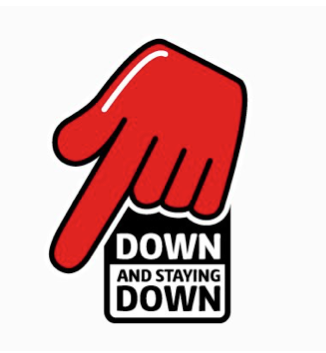
Share prices are staying down?
If you are a regular follower of our blog, you will know that we have been negative on Woolworths – and all higher-margin incumbent supermarkets – since our conference call last year with Paul Foley, former CEO for over 20 years at Aldi UK. Just type “Woolworths” into the search bar (above to the right hand side) and you can see all of our articles on the subject.
You will note that despite what we believe is clear evidence of the deterioration of incumbent supermarket margins – just as has happened everywhere else in the world where Aldi has entered – the stock market, and investors, live in denial and take an extremely long time to work it out. Woolworths pricing right now, to us, is a clear example of the market being inefficient rather than efficient.
Note the following quote from Kantar Worldpanel director Edward Garner, who has warned that Australia’s major grocery retailers are facing a “new normal” of lower sales and weaker margins as the sector becomes more price-competitive and Aldi gains market share.” SMH
In the long-term it might all work out (unlikely at current margins and revenues), but in the meantime there may be some very painful disruption, and some reconstruction required.
Today our very good friends over at UBS have, in conjunction with the Australian Food & Grocery Council (AFGC) undertaken a survey of suppliers – representing 35 to 40 per cent of the Australian grocery market (this is more than $30 billion of wholesale revenue) – to understand the pressures in the market, changes being made and the market outlook (retailer & supplier).
These findings represent a possible warning to investors who believe that Woolworths is ‘blue-chip’ because all findings point to slowing sales and profit growth for retailers.
The first finding is positive proof that Aldi’s strategy, which Paul Foley warned us about last year, is working. UBS noted: “Discounters are changing the market, impacting retailer and customer behavior.”
The second finding suggests upside growth has reached a natural limit because price increases cannot be imposed amid heightened competition from aggressive ‘hard discounters’. UBS observed; “Retailer and supplier performance is expected to broadly converge as the retailer profit pool is now maxed out.”
The war between the incumbents and the hard discounters like Aldi is impacting suppliers and means the incumbents cannot extract more from them: “Suppliers are giving less to the retailers as they have less to give.”
As we reported previously there is no example in the world, in any market that Aldi has entered, where the incumbents have come up with a strategy that ensures they can maintain revenue growth and profit margins. None. To this point UBS today notes: “With no clear strategy to win, suppliers and retailers are experimenting with a number of strategies.”
Finally and with respect specifically to Woolworths, UBS notes: “WW is not broken, but its strategy must evolve.”
We don’t believe Woolies management is significantly better than the management embedded in incumbent supermarkets elsewhere in the world and who’s “evolution” has failed to deliver a worthy adversary to Aldi’s model.
Roger Montgomery is the founder and Chief Investment Officer of Montgomery Investment Management. To invest with Montgomery, find out more.
http://www.smh.com.au/business/retail/coles-woolworths-urged-to-target-aldis-weaknesses-20150527-ghav10.html
just for those interested an article in the SMH this morning
It’s a few days old, but the article is just as relevant to this debate – the changing face of the consumer and its impact on American food companies: http://fortune.com/2015/05/21/the-war-on-big-food/
What are the teams thoughts around the potential of online grocery shopping to further disrupt the market place? Woolies and Coles have a clear advantage over Aldi in this area given their economies of scale and Aldi have stated that have no intention to move into this market.
There will be some aspects of the incumbents models that are superior to Aldi. The question for us whether the scalability of those advantages can offset the adverse impacts – in our view unlikely.